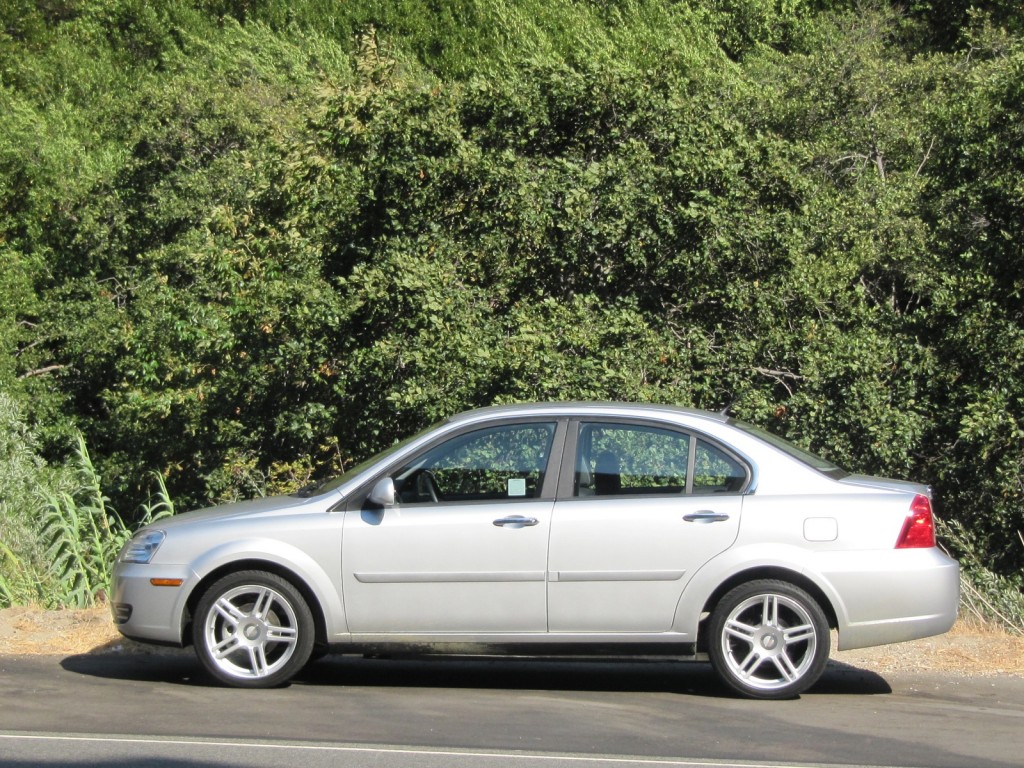Suppose you took a Chinese-made compact sedan, converted it to a battery-electric vehicle, and sold it in the U.S. market.
Does that story line sound familiar?
If so, you may be thinking of Coda Automotive, the now-all-but-defunct maker of the 2012 Coda Sedan.
Coda flashed into our minds on reading an announcement from Greentech Automotive (GTA) that it was entering into a "strategic partnership" with JAC Motors, a "leading Chinese automotive manufacturer."
The venture will develop a five-passenger, all-electric sedan for the North American market.
Rejoice!
Starting late this year, it says, the company plans to assemble that car in the Mississippi plant it opened in November 2011 and sell it in the United States.
After 2,000 "pilot" cars are built, GTA plans to open another assembly facility elsewhere in the States, creating an additional 200 jobs.
The electric car it intends to build will be based on JAC's "award-winning" compact sedan, which carries the model name Rejoice, built in China.
It will be powered by GTA's "advanced electric powertrain and battery management system," including a 19-kilowatt-hour lithium-ion battery pack.
GTA quotes its range as "over 100 miles" on a single charge, which will take 6 to 8 hours.
A 'win-win'
The press release says, in the words of Jing An, JAC's chairman and CEO, that "this partnership represents a win-win for both our companies.”
Never heard of GTA? We hadn't either, really.
At the moment, the company sells the MyCar, a two-seat all-electric car with a choice of battery packs.
The base lead-acid configuration offers 51 miles of range, the company says, and lithium-ion packs of 7.6, 15, or 23 kWh provide 31, 61, or 95 miles respectively.
The lead-acid model uses a 5.2-kilowatt (6.8-horsepower) motor, while the three lithium-ion models are powered by an 8-kW (11-hp) motor.
Unfortunately, the MyCar is categorized as a low-speed or neighborhood electric vehicle, limited to a maximum speed of 25 mph.

mycar electric motorauthority 002
It offers, according to GTA, a "fun, affordable driving experience"--though we were unable to find prices mentioned anywhere on the IntroducingMyCar website. (It's roughly $15,000.)
25-mph sedan
You might expect the compact sedan GTA has announced, on the other hand, to be capable of carrying five passengers and their goods at highway speeds.
As such, it would be subject to literally thousands of Federal motor-vehicle safety and equipment standards that the MyCar doesn't have to meet.
Initially, your expectations would be disappointed. As Fox News discovered, GTA plans to sell the sedan initially as a neighborhood electric vehicle only.
It plans to homologate the car for highway use eventually, but will initially target commercial fleet customers who will use the GTA sedans on closed campuses and local roads.
A year of discussions
The agreement between GTA and JAC, finalized in March, was announced at the Shangahi Auto Show last week.
It followed "in-depth technical reviews and marketing planning discussions" between the two companies that started in 2012.
Here's the problem: This is the playbook followed by Coda Automotive, which started with NEVs and finally managed to get its 2012 Coda Sedan into U.S. production in February last year.

2012 Coda Sedan
Over a year of sales, it appears to have sold no more than 100 cars. In January, prices on the leftover cars were slashed to just $25,000.
Why? Perhaps because the car was both plain and filled with annoying design defects (not to mention some sketchy assembly quality).
Together, those factors made the Coda Sedan wildly uncompetitive against the Nissan Leaf, Chevrolet Volt, and other plug-in electric cars from experienced global automakers.
We wish GTA the best of luck. But we'll believe that it's capable of launching a new electric sedan when we drive one.
Whether it's competitive, as Coda found out, is another question altogether.
And if it's restricted to 25 mph ... well, don't call us. We'll call you.
+++++++++++













